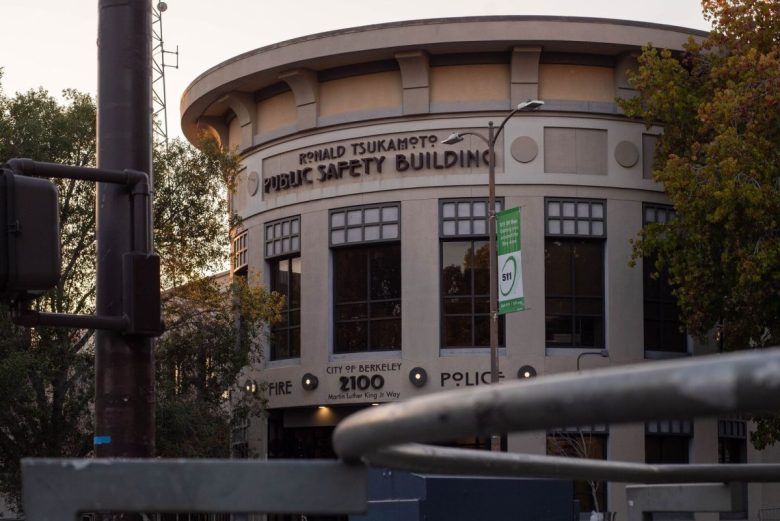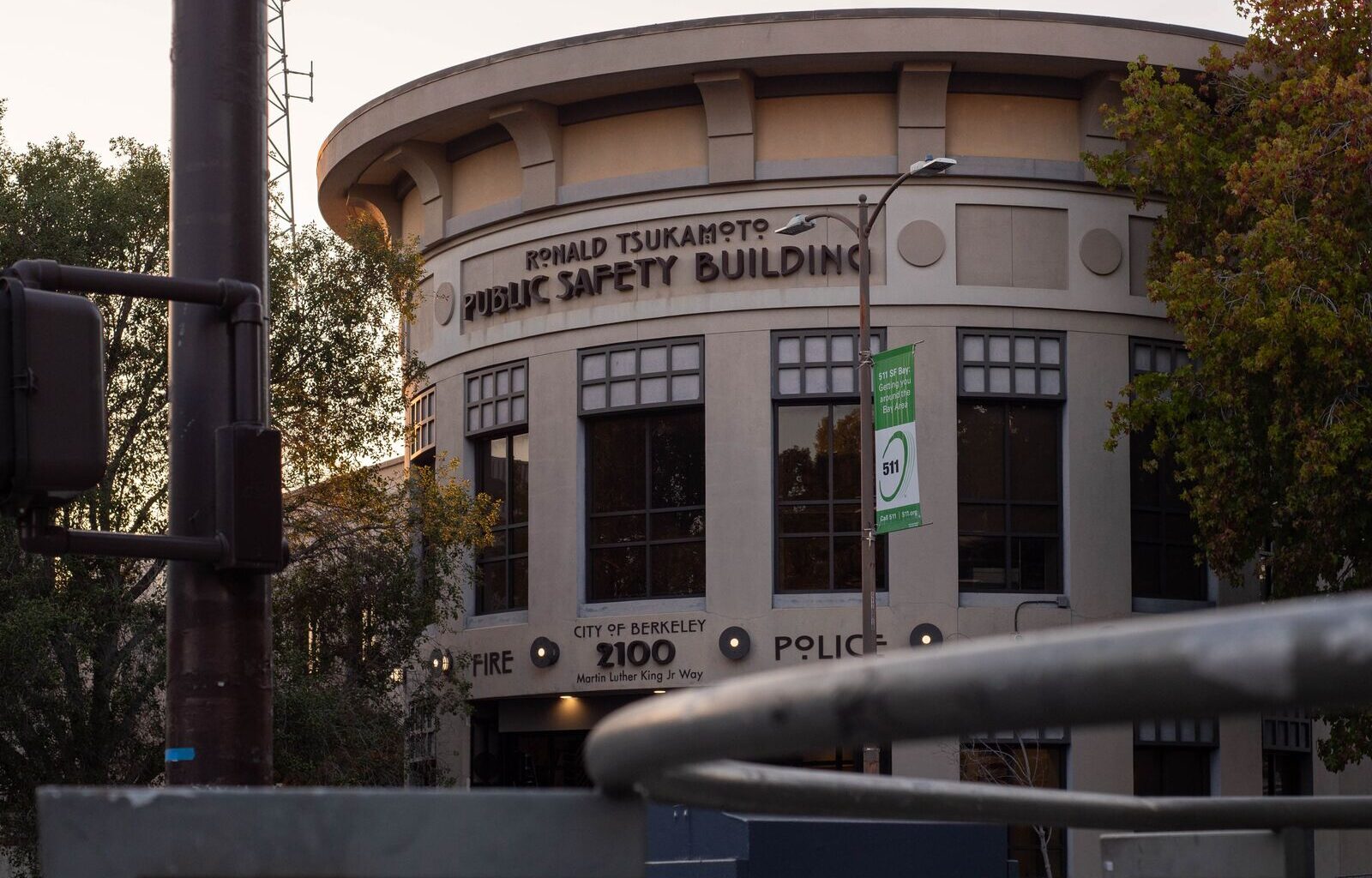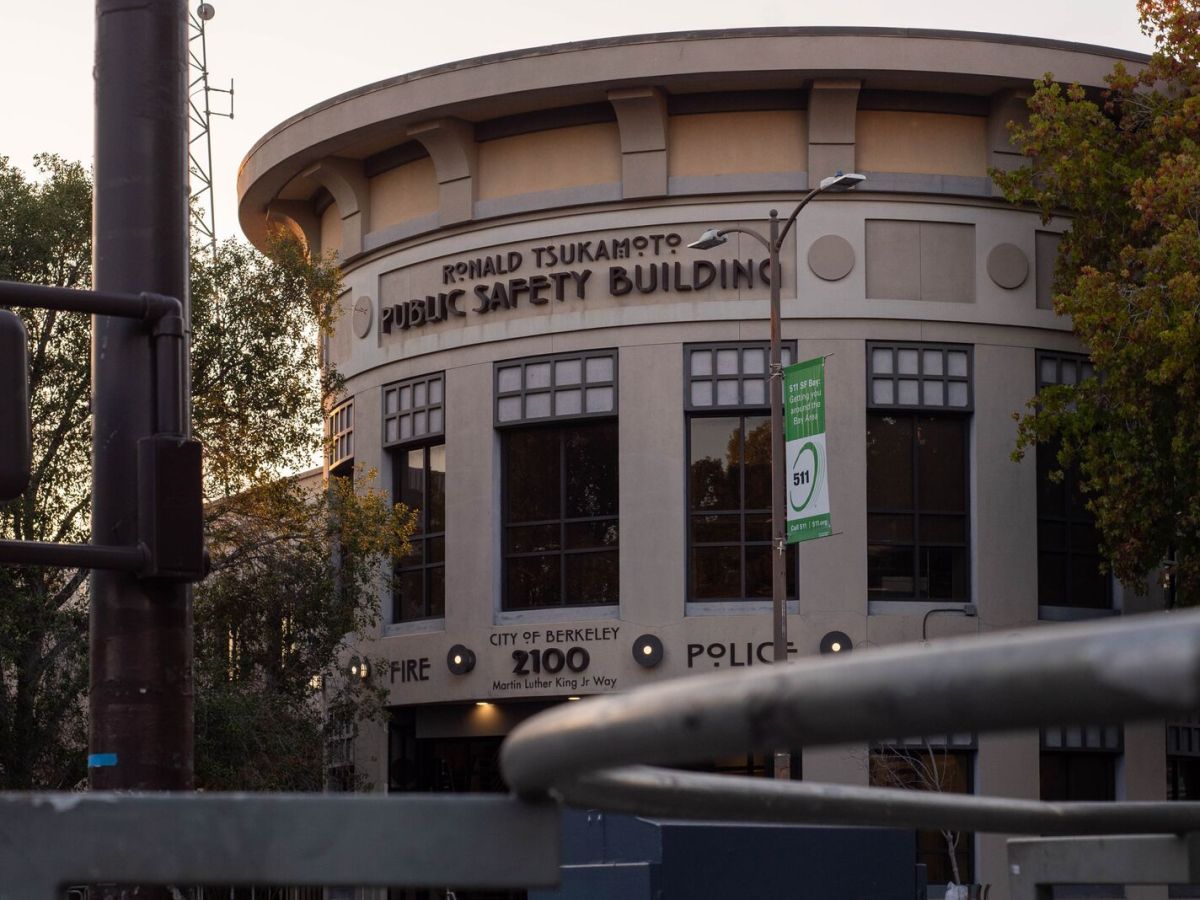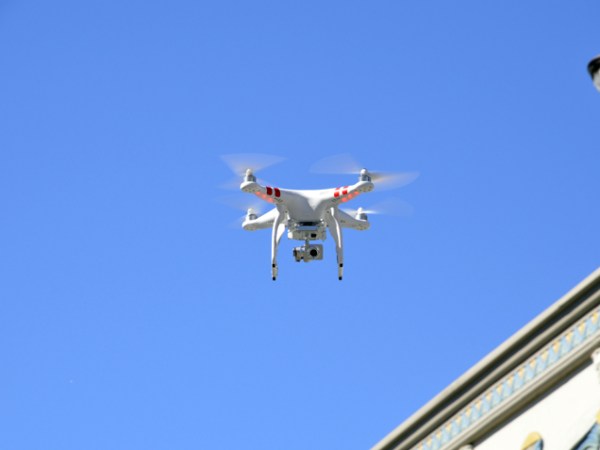 Berkeley police headquarters. Credit: Ximena Natera, Berkeleyside/Catchlight
Berkeley police headquarters. Credit: Ximena Natera, Berkeleyside/Catchlight
Berkeley police would like to keep their radio calls to themselves.
Police Chief Jen Louis has asked the City Council for permission to encrypt all of her agency’s radio communications. Many police calls in Berkeley already are over encrypted bands — such as Special Response Team calls, special patrol or investigative calls and others — but the department’s main dispatch channels remain open to the public.
Every other policy agency in Alameda County has moved to start encrypting their radio communications over the past several weeks. But critics say the change eliminates vital sources of information about crimes and emergencies, and makes transparency and accountability for police a harder target. Berkeleyside reporters, for example, frequently tune in to BPD’s channels for background information on breaking news situations.
The proposal will go before the City Council on Oct. 28. The item is listed on the meeting’s consent calendar, the batch of actions the council typically adopts without extensive debate or opposition.
Louis said allowing the public to access radio communications has “substantial” implications for her officers’ safety. In a report to the City Council, she wrote that police have caught burglars listening in on the unencrypted channels, which can give them real-time information on where some officers are heading.
“When suspects have advance notice of officer presence or activity in an area, it not only enables their evasion of arrest; it can create a tactical disadvantage for responding personnel and increases the risk of a violent encounter,” she wrote to the council. “Advance knowledge of officer locations, response times and tactics allows offenders to avoid detection, to reposition or withdraw, to prepare aggressive responses or to set up ambushes if a confrontation ensues.”
In 2020, then-California Attorney General Xavier Becerra issued a memo prohibiting law enforcement agencies from broadcasting sensitive or personally identifiable information on police radios, and some agencies have claimed their moves to encrypt all police communications stemmed from that memo.
But the memo itself did not explicitly mandate full encryption and at least one Bay Area agency, the Palo Alto Police Department, went back to open transmissions after initially encrypting all their calls. Their officers were given alternative means of relaying sensitive information, including by cell phone.
At the time, Berkeley considered full encryption, but the Council opted to limit BPD to only encrypting some of its calls. Louis’ pitch to the council is to lift that restriction, allowing encryption on all radio calls.
As most of the rest of the police bands in the county went behind the curtain of encryption, BPD told the city’s police oversight board last month that it had no plans to hide its radio transmissions.
Louis “wants to reiterate the BPD is maintaining its current encryption settings at this time,” police Lt. Melanie Turner reported Sept. 3 to the Police Accountability Board. “This means that members of the media and the public may still monitor BPD radio channels.”
Nevertheless, Turner projected that encryption was not out of the question.
“We are assessing the balance between transparency, privacy protections and operational needs, and acknowledge that a future transition to county-wide encryption may ultimately be required,” Turner said in September.
In a memo two weeks later, Director of Police Accountability Hansel Aguilar and his policy analyst, Jose Murillo, wrote that there were a number of tradeoffs on the matter of encryption — between protecting officers and privacy and standardizing industry practices on the one hand, and transparency, real-time information and public and media oversight on the other, to name a few. They wrote that Berkeley’s civilian oversight apparatus would need to do more research before determining how good it would be for the city.
Recordings of radio transmissions are generally considered public records, and are available on request.
The Oaklandside reporter Roselyn Romero contributed to this report.
Related stories
Police hiring is on the rebound as crime rates in Berkeley have fallen, BPD says
March 19, 2025March 19, 2025, 2:43 p.m.
Berkeley’s 911 call center struggles to hire enough dispatchers
October 9, 2025Oct. 9, 2025, 5:16 p.m.
Berkeley will look into giving drones to police and firefighters
September 29, 2025Sept. 29, 2025, 2:23 p.m.
“*” indicates required fields




